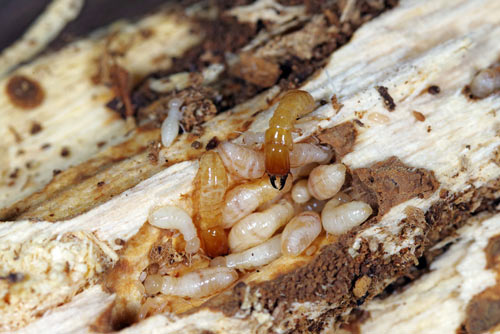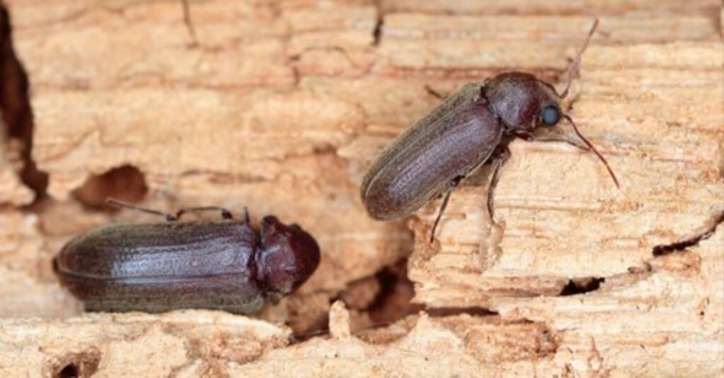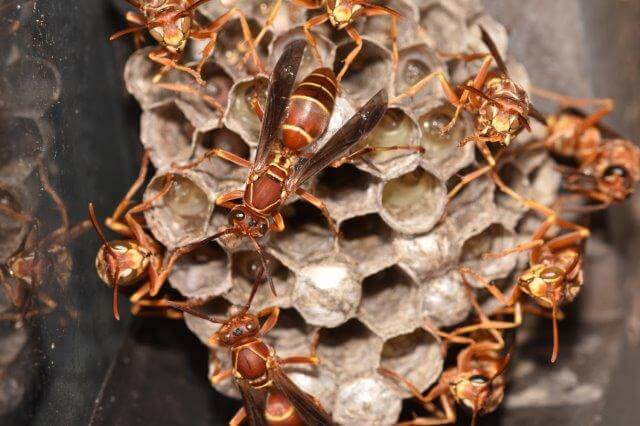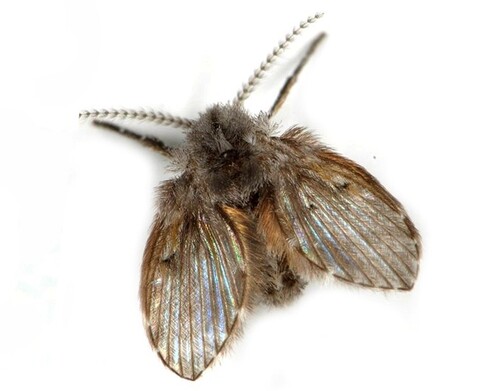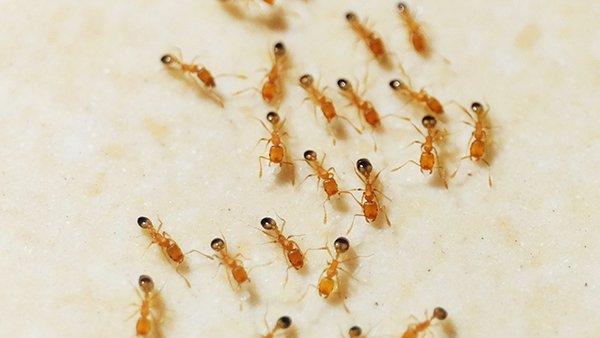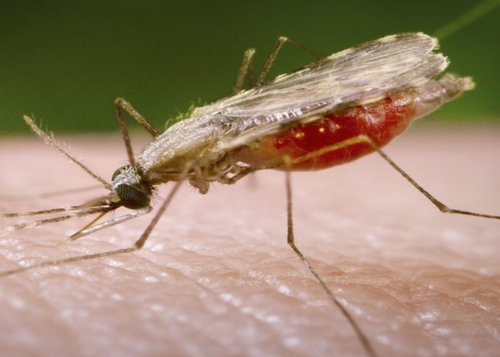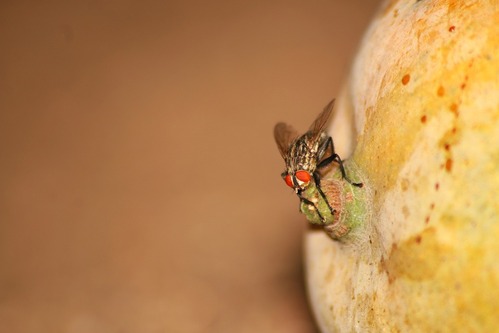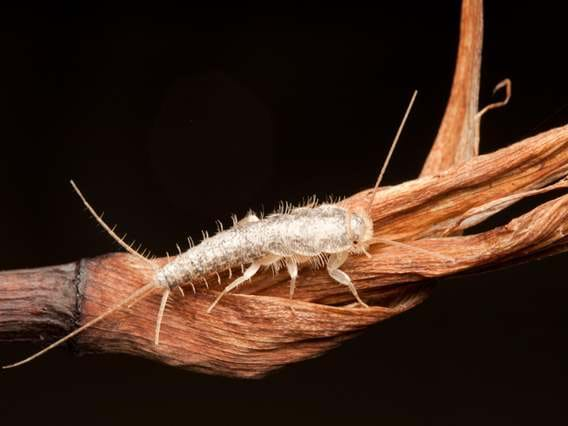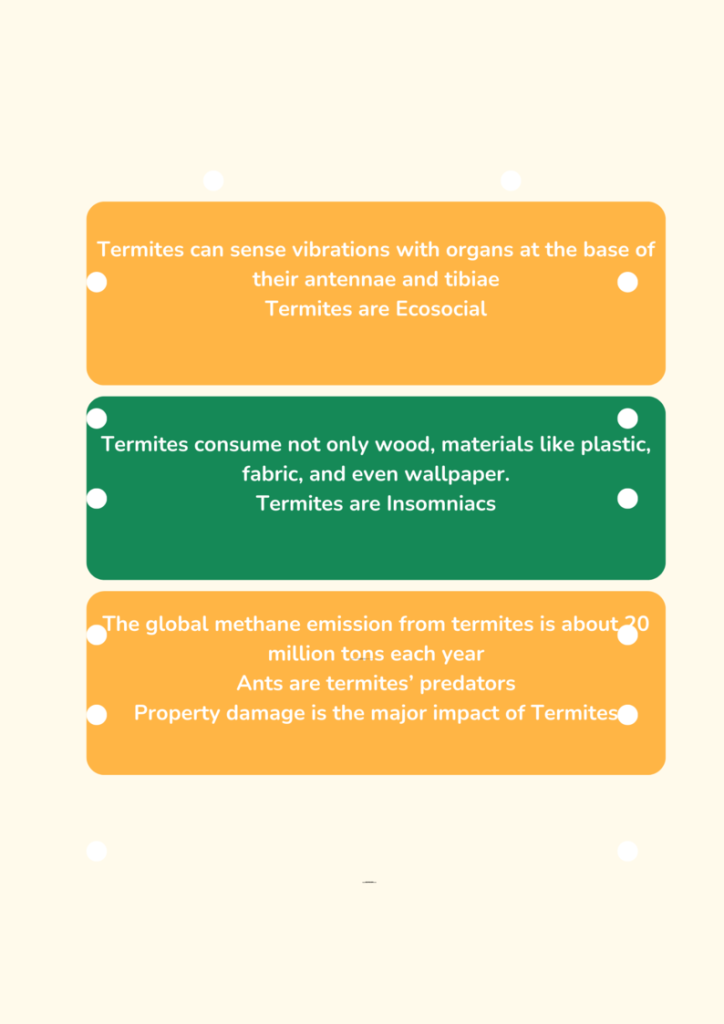Drywood termites can often escape detection, as they live deep inside wooden structures. Compared to other species, their colonies are very small and often spread out within the house. Drywood termites will colonize in attics where temperatures may exceed 131 degrees Fahrenheit. There, they will locate their colonies in wood that has more favorable temperatures, […]
The common furniture woodworm beetle is a wood boring beetle measuring 2.7-4.5 mm in length and has a brown ellipsodial body with a pronotum. Furniture beetles are attracted to wood. They can be brought into the home through infested furniture or timber, or they may naturally seek out damp or moist wood on their own. […]
Paper wasps are semi-social insects, they will sting to protect their colony, releasing toxins that can be harmful. Wasps can sting repeatedly causing pain, swelling and whole-body effects that can trigger allergic reactions. They do not store food and they eat insects and spiders. Forager wasps bring morsels of food back to the nest from […]
Sewer flies are small, grey pest, they come from organic buildups in any area where there is standing water, breeds in the buildup in pipes and enters the bathroom through a faulty seal between the toilet and sewer flange. This might indicate they are breeding lower down in the pipe and flying upwards. sewer flies […]
Mice are notorious for infesting buildings and their ability to slip through the smallest of entry points. Mice should be a concern for any property owner due to their capacity to spread disease and their destructive eating habits. Mice are famous for being able to chew through things like soft concrete, wood, plastic, aluminum, and […]
Pharaoh ants are a social group of pests that live in our area and regularly get into homes and businesses. They do not require large openings or spaces to squeeze their way. They nest in warm, humid areas near food and water sources. Nests are usually located in inaccessible areas such as wall voids, behind […]
Nearly 500 Anopheles species are recognized, only 30-40 transmit malaria in nature. Female Anopheles mosquito is a vector for Malarial parasite. Male mosquitoes do not bite. The adult females are generally short-lived, with only a small proportion living long enough to transmit malaria. Anopheles mosquitoes can be distinguished from other mosquitoes by the palps, which […]
Fruit flies (Drosophila melanogaster) can transfer germs from a dirty surface onto a clean one. They may carry bacteria include salmonella, E. coli, and listeria. These three germs each cause food poisoning. Fruit flies often come in through cracks in walls or pre-laid eggs inside of a piece of fruit from the grocery store. Fruit […]
Silverfish is a small, primitive, wingless insect. Adult silverfish have a body length of about 12-19 mm that can infest a home. Very hard to spot because they prefer to live in dark, moist places where damp is common. They can cause property damage by chewing holes in clothing, upholstery and paper goods. Silverfish are […]
Moisture is one of the main reasons that attract all kinds of pests including termites into your home. Termites take a very short time to spread.

